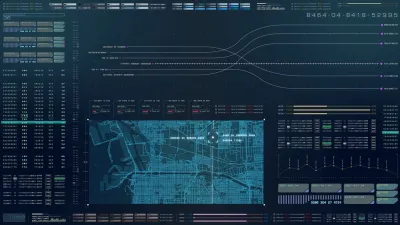Street furniture like benches, garbage cans, and bike racks are found in every city. But not all street furniture is created equal—new technology is redefining street furniture as the smart devices that run efficient cities.
Mike Clay examines worldwide examples of cities “incorporating smart street furniture - that is more responsive to the public’s needs.”
Clay’s examples include bike counters that double as air pumps found in Copenhagen. Citing another European experience with bike counters, “[the] German Ministry of Transport sees bicycle counters as ‘visible proof of a dedicated effort to strengthen cycling’, and have become landmarks of Germany's cities.”
Another example is trash cans with built-in sensors: “bins can detect how full they are and call for collection only when it is needed.” The University of Washington has deployed another advancement of the traditional trash can: “Instead of wasting 61 percent of rubbish, the University of Washington introduced solar-powered kiosks that collect, compost, and recycle garbage.”
As future smart device that could improve the conditions of streets, Clay suggests implementing the water sensor technology currently saving water at farms around the world “into tree-pit irrigation systems [in cities] …saving water when needs be and alerting civic authorities when trees need watering.”
FULL STORY: How Data-Powered Street Furniture is Making Cities Smarter

Planetizen Federal Action Tracker
A weekly monitor of how Trump’s orders and actions are impacting planners and planning in America.

Map: Where Senate Republicans Want to Sell Your Public Lands
For public land advocates, the Senate Republicans’ proposal to sell millions of acres of public land in the West is “the biggest fight of their careers.”

Restaurant Patios Were a Pandemic Win — Why Were They so Hard to Keep?
Social distancing requirements and changes in travel patterns prompted cities to pilot new uses for street and sidewalk space. Then it got complicated.

Platform Pilsner: Vancouver Transit Agency Releases... a Beer?
TransLink will receive a portion of every sale of the four-pack.

Toronto Weighs Cheaper Transit, Parking Hikes for Major Events
Special event rates would take effect during large festivals, sports games and concerts to ‘discourage driving, manage congestion and free up space for transit.”

Berlin to Consider Car-Free Zone Larger Than Manhattan
The area bound by the 22-mile Ringbahn would still allow 12 uses of a private automobile per year per person, and several other exemptions.
Urban Design for Planners 1: Software Tools
This six-course series explores essential urban design concepts using open source software and equips planners with the tools they need to participate fully in the urban design process.
Planning for Universal Design
Learn the tools for implementing Universal Design in planning regulations.
Heyer Gruel & Associates PA
JM Goldson LLC
Custer County Colorado
City of Camden Redevelopment Agency
City of Astoria
Transportation Research & Education Center (TREC) at Portland State University
Camden Redevelopment Agency
City of Claremont
Municipality of Princeton (NJ)





























